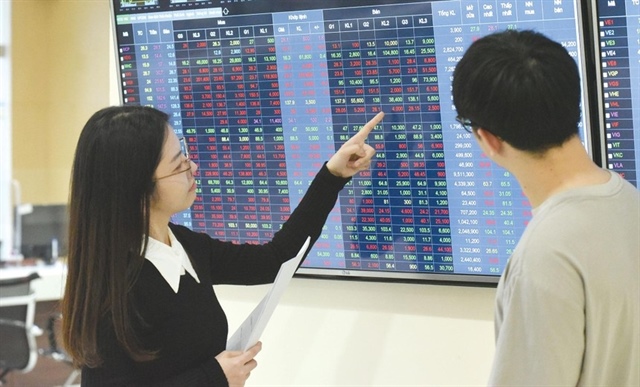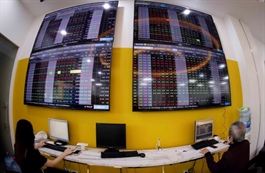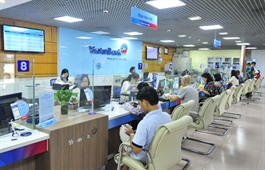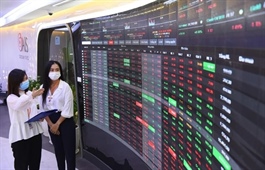Investors call for review of dividend tax
Investors call for review of dividend tax
Many investors believe taxing shareholders twice on the same profit is unfair, triggering the need to review and perhaps abolish the practice to strengthen investor confidence, increase investment returns, and entice more capital inflow into the stock market.
Tuan is an investor in tech-driven lender Techcombank (TCB). Last May, the bank finalised the list of shareholders eligible for a 15 per cent cash dividend, meaning shareholders would receive VND1,500 ($0.06) in cash per share owned.

Photo: baodautu.vn |
However, shareholders had to pay a 5 per cent tax on this amount, meaning Tuan, who owns 100,000 TCB shares, would receive about $6,250 in his dividend before tax, but must pay $312 in tax, leaving him with just around $5,938 in dividend.
"What’s interesting is that the dividend is paid from TCB’s retained after-tax profit. When I receive the dividend and pay tax on it, as a bank shareholder, I have already paid income tax once. Clearly, I and other shareholders are being taxed twice on the same income," said Tuan.
Tuan argued that only 10 countries tax dividends worldwide. The US eliminated its dividend tax in 2003, arguing that it constitutes ‘double taxation’- first on corporate profits and then on personal income. Vietnam's tax policy has removed double taxation for businesses and when companies receive dividends, they don’t pay tax, but it remains unfair for individual investors.
The second story involves TCB's stock dividend. TCB issued stock dividends at a 1:1 ratio last June, meaning each shareholder received an additional share for every share owned. So, for Tuan's 100,000 TCB shares, he received an additional 100,000 shares, doubling his holdings to 200,000 shares.
On the payout date, the share price, however, halved from VND48,000 ($2.00) to VND24,000 ($1.00) per share. While Tuan’s asset value remained unchanged, he must pay dividend tax on the additional shares if sold.
For example, if Tuan needed cash on December 31, 2024, and sold his shares at $1 each, he would earn $200,000. Besides transaction costs and a 0.1 per cent transfer tax as regulated, he would need to pay an additional 5 per cent tax on the par value of the stock dividend received, equal to $2,080. Despite no asset gain, he would face an immediate $2,080 tax bill upon selling the shares, which seems very much like double taxation, contradicting the practices of many other countries.
Besides the double-taxation issue, stock market performance remains lacklustre. As a long-term investor, Tuan believes that the economy's overall liquidity determines the stock market's vitality, and hopes the government will act promptly to address market bottlenecks, including the dividend taxation issue.
"We must face the reality that some aspects of Vietnam's stock market are still imperfect for attracting diverse investor appetites. Meanwhile, internal regulations fail to encourage domestic investors, despite high expectations for growth," Tuan added.
According to Tuan, the Ministry of Finance planned to review and amend regulations on personal income from securities investment or transfers and individual income tax from capital transfers and securities transfers at the end of last year.
While no specific information has been released, this signals that regulators are heeding investors' concerns.
The government's stock market development strategy is aiming for stock market capitalisation of 100 per cent of GDP by the end of 2025 and 120 per cent by 2030. The derivatives market is expected to grow by 20 per cent to 30 per cent annually from 2021 to 2030.
























